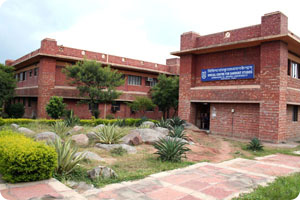Education in India
Notice: Function wpdb::prepare was called incorrectly. The query argument of wpdb::prepare() must have a placeholder. Please see Debugging in WordPress for more information. (This message was added in version 3.9.0.) in /var/www/vhosts/indiavision.com/httpdocs/wp-includes/functions.php on line 6085
Notice: Function wpdb::prepare was called incorrectly. The query does not contain the correct number of placeholders (0) for the number of arguments passed (1). Please see Debugging in WordPress for more information. (This message was added in version 4.8.3.) in /var/www/vhosts/indiavision.com/httpdocs/wp-includes/functions.php on line 6085
Sanskrit Studies in South India
Sanskrit is regarded as the oldest language and medium of education in India. The Southern part of India is no different while it comes to Vedic education. In earlier days, there was no annual exam or mass promotion in the education system. | Other CategoriesNotice: Function wpdb::prepare was called incorrectly. The query argument of wpdb::prepare() must have a placeholder. Please see Debugging in WordPress for more information. (This message was added in version 3.9.0.) in /var/www/vhosts/indiavision.com/httpdocs/wp-includes/functions.php on line 6085 Notice: Function wpdb::prepare was called incorrectly. The query does not contain the correct number of placeholders (0) for the number of arguments passed (1). Please see Debugging in WordPress for more information. (This message was added in version 4.8.3.) in /var/www/vhosts/indiavision.com/httpdocs/wp-includes/functions.php on line 6085 Elementary Education in India Secondary Education in India University Education in India Indian Educational Acts Adult Education in India Education in Ancient India Education in Barhgarh Education in Bihar Education in Jalpaiguri Education in Kolkata Education in Kutch Education in Murshidabad Education in Nadia District,West Bengal Education in Pathankot Education in Rajasthan Education in Rayagada, Orissa Education in Berhampur,Orissa Sanskrit Studies in South India Main CategoriesNotice: Function wpdb::prepare was called incorrectly. The query argument of wpdb::prepare() must have a placeholder. Please see Debugging in WordPress for more information. (This message was added in version 3.9.0.) in /var/www/vhosts/indiavision.com/httpdocs/wp-includes/functions.php on line 6085 Notice: Function wpdb::prepare was called incorrectly. The query does not contain the correct number of placeholders (0) for the number of arguments passed (1). Please see Debugging in WordPress for more information. (This message was added in version 4.8.3.) in /var/www/vhosts/indiavision.com/httpdocs/wp-includes/functions.php on line 6085 Foreign Degrees in India Career Options after HSC Entrance Test Examinations International Examinations Competitive examinations in India Education in India Colleges In Indian States Medical Colleges in India Management Courses in India Engineering Courses in India Professional Courses in India Academic Degree Course In India Education Governing Bodies Indian Education System Women Education in India Structure of Indian Education IITs in India Development of Education in India Online education in India Gurukul Education in Modern India |
